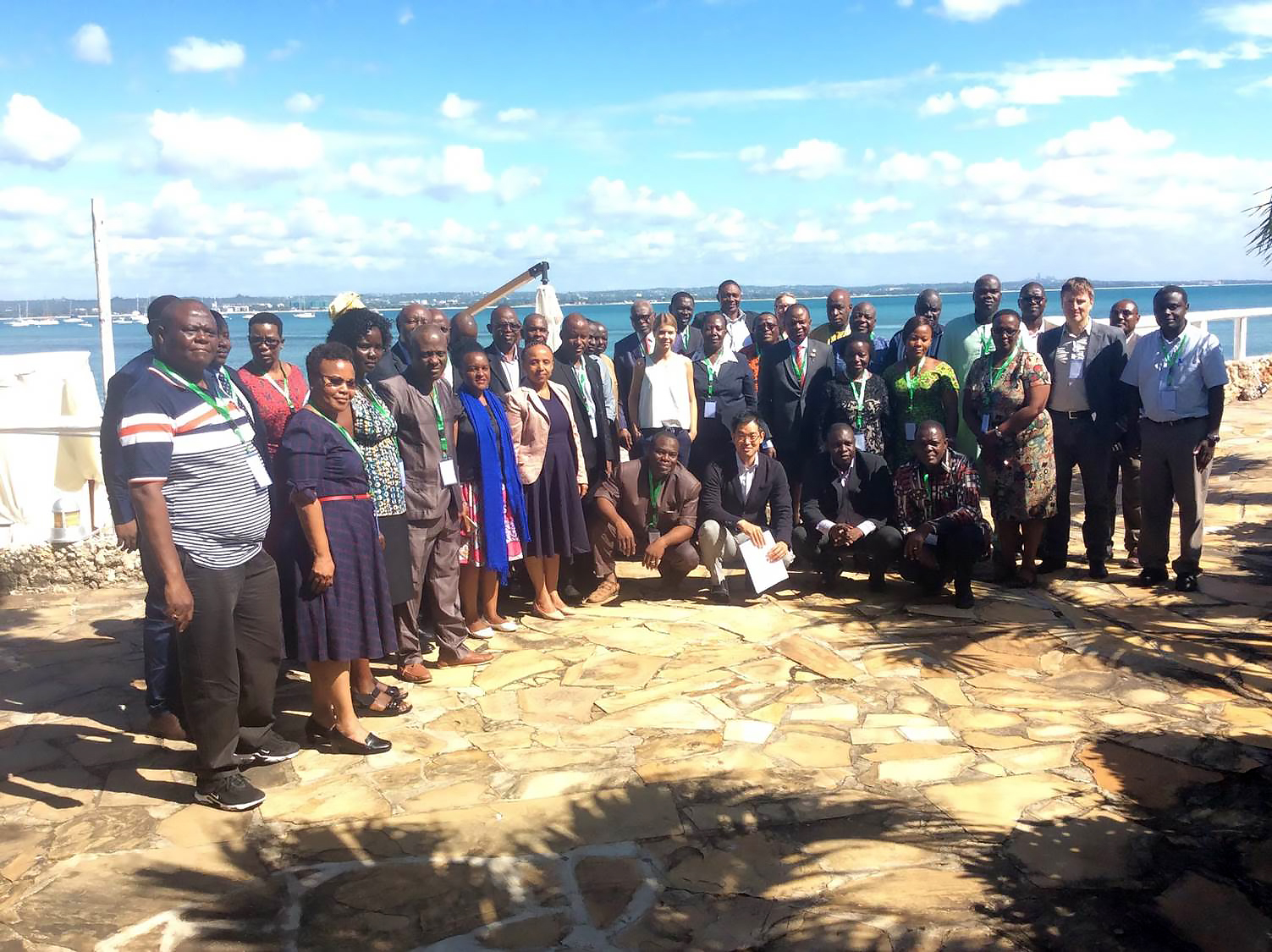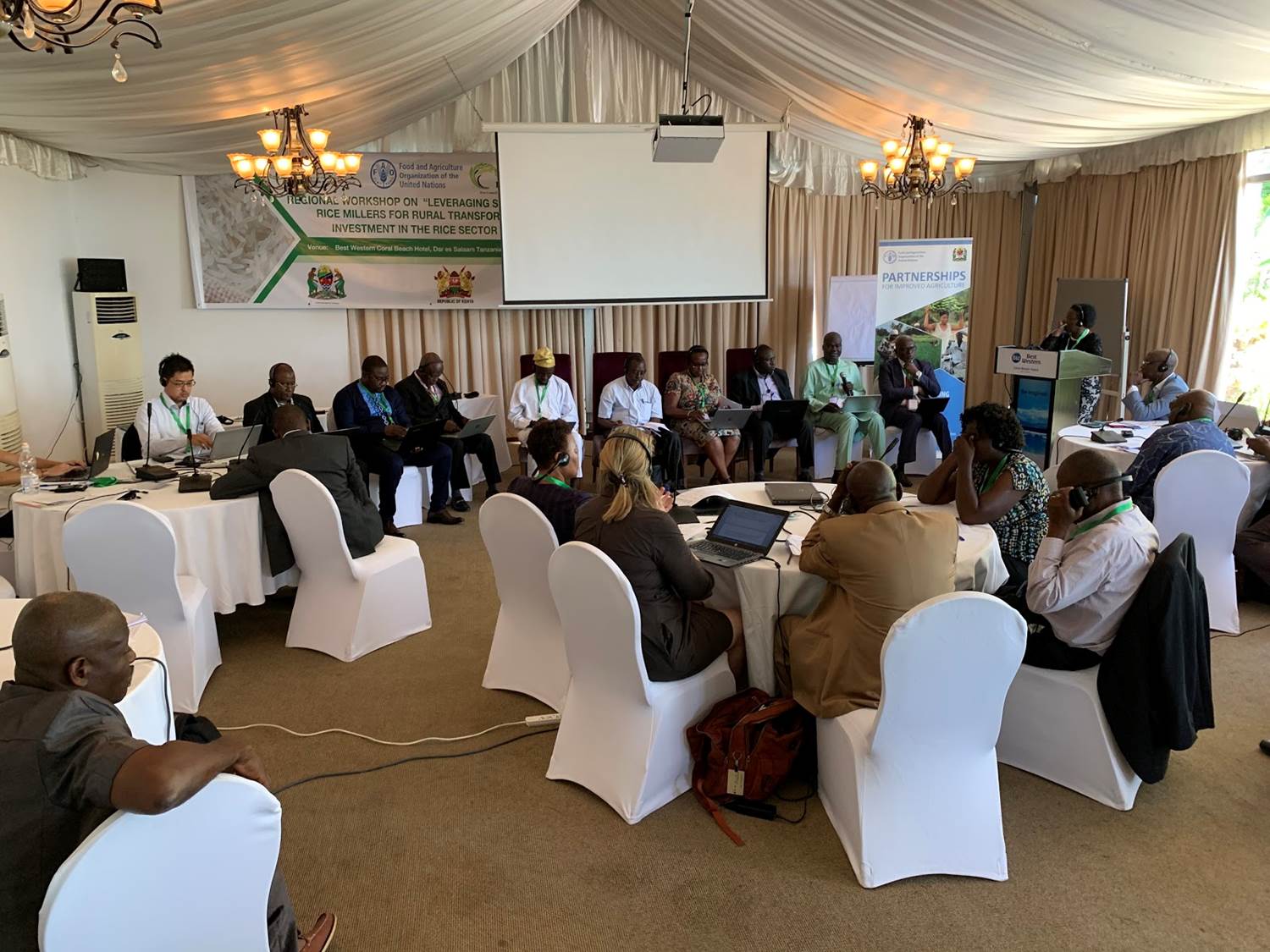IRRI through the CGIAR Research Program on Rice (RICE) transforms rice-based agri-food systems by developing coherent regional and national strategies for rice value chain upgrading in Asia and Africa.
In order to understand the role and needs, including investment needs, of rice millers to accelerate rural transformation, an interdisciplinary team of economists and engineers under RICE Flagship Project 2 – Upgrading Rice Value Chains (FP2) joined the regional workshop on Leveraging small and medium rice millers for rural transformation and investment in the rice sector in Africa.
FP2 Leader and IRRI senior scientist Matty Demont presented the regional strategy developed by the team on rice value chain upgrading in Africa, followed by a recent review of the evidence of investment in rice value chain upgrading in West Africa.
According to the Director of the Center for Agricultural Research (CRA) at the Senegalese Institute of Agricultural Research (ISRA) Dr. Amadou Abdoulaye Fall, “I learned from the regional strategy presented by the team that African rice-producing countries can be segmented according to their exposure to the world market, on the one hand, and rice cultural heritage on the other. Following this strategy, coastal countries with a seaport and remote from rice cultural heritage are recommended to timely invest in rice value chain upgrading to compete against imported rice. The available evidence suggests that this strategy is indeed being adopted, as most investment in rice milling and institutional upgrading is taking place in these countries.”
On the second day, Matty Demont presented an overview of lessons from Asia on how the private sector can catalyze (1) differentiation and branding of rice in response to demand for quality, and (2) investment in input, credit and seed markets. According to Dr. Demont, “The key to upgrading rice value chains in Asia and Africa is providing an optimal enabling environment to crowd in private sector investment. These lessons learned will be important inputs in the second phase of the Coalition for African Rice Development (CARD).”
The FP2 scientists then joined discussions in exchanging public and private sector perspectives on targeted investment approaches, leverage points for increased efficiency in agribusiness value chains and the creation of an enabling, sustainable and innovative business environment and foster cross-fertilization. IRRI senior scientist and postharvest and mechanization expert Martin Gummert observed that the private sector expressed great interest in the postharvest technologies and knowledge products that have been developed at IRRI and AfricaRice. According to him, “This workshop was an excellent opportunity for strategizing how the private sector can be leveraged to accelerate rice value chain upgrading in Africa.”

Photo courtesy: FAO and AfricaRice
After the workshop, the FP2 team convened for its annual reporting and planning meeting. Cumulative lessons were drawn after the first three years of the RICE and first evidence of the impact of FP2 research was presented. The team then concluded with a foresight exercise to anticipate high priority research areas for the CGIAR beyond 2022.
According to Dr. Demont, “The team has unanimously agreed that FP2 is well positioned to act as a catalyst of change to reposition the focus of CGIAR research in a rapidly changing world. In particular, FP2 was designed with a strong focus on food systems, nutrition, climate change and sustainability, all themes that are expected to be at the forefront of the CGIAR’s new research focus.” He concludes that “FP2 is basically an interdisciplinary portfolio of strategic market and foresight research, on the one hand, and technology, process, and product development research, on the other hand. While the former is rapidly transforming its commodity focus towards food systems and nutrition, the latter is increasingly targeted towards climate change mitigation and sustainability. Hence FP2 is ideally placed to address the upcoming climate change versus nutrition security nexus.”
The workshop was jointly organized by FAO, AfricaRice and the Rice Council of Tanzania in Dar-es-Salam, Tanzania, 28–30 May 2019. It was attended by more than 45 participants representing public and private sectors from nine countries (Benin, Cameroon, Côte d’Ivoire, Kenya, Mali, Nigeria, Senegal, Tanzania, and Uganda), CARD, JICA, FAO, AfricaRice and IRRI.


Recent Comments